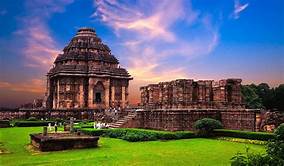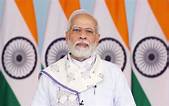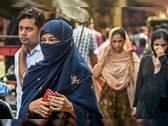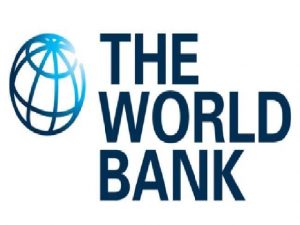Today Current Affairs: 8th July 2022 for UPSC IAS exams, State PSC exams, SSC CGL, State SSC, RRB, Railways, Banking Exam & IBPS, etc
Table of Contents
13th Extension To The Justice Rohini Commission:

The Union Cabinet gave the 13th extension to the Justice Rohini Commission, to examine sub-categorisation of Other Backward Classes (OBCs) and submit its report by 31st January 2023.
- The initial deadline to submit the commission’s report was 12 weeks — by 2nd January, 2018.
- The commission was set up on 2nd October, 2017 under Article 340 of the Constitution.
- It was tasked with sub-categorisation of the Other Backward Classes (OBCs) and equitable distribution of benefits reserved for them.
- In 2015, the National Commission for Backward Classes (NCBC) had recommended that OBCs should be categorised into extremely backward classes, more backward classes and backward classes.
- NCBC has the authority to examine complaints and welfare measures regarding socially and educationally backward classes.
- Commission’s Terms of References:
- To examine the uneven distribution of reservation benefits among different castes in the central OBC list.
- To work out the mechanism, criteria, norms and parameters in a scientific approach for sub-categorisation within such OBCs.
- To take up the exercise of identifying the respective castes/communities/sub-castes/synonyms for comprehensive data coverage.
- To study and recommend correction of any repetitions, ambiguities, inconsistencies and errors of spelling or transcription.
Nominated Members Of The Rajya Sabha:

Athlete P T Usha and music maestro Ilaiyaraaja were among prominent personalties nominated to Rajya Sabha.
- Philanthropist and administrator of the Dharmasthala temple Veerendra Heggade and noted screen writer V Vijayendra Prasad were also nominated to the Upper House of Parliament.
- The Rajya Sabha had vacancies in the nominated category.
- Twelve members are nominated to the Rajya Sabha by the President of India for six-years term for their contributions towards arts, literature, sciences, and social services.
- This right has been bestowed upon the President according to the Fourth Schedule (Articles 4(1) and 80(2)) of the Constitution of India.
Konark Sun Temple:

Visitors to the Sun Temple in Konark, Odisha, will soon be able to see the newly carved stones on the northern side of the jagmohan, or the assembly hall, of the World Heritage Site.
- The pilot project started in 2019 with a study of the stones at the temple and an analysis of the historic drawings and photos from the 19th century onwards.
- Starting in 1901, the British government had placed plain stones across the site and filled the jagmohan with sand to preserve the structure of the 13th century temple.
- The Archaeological Survey of India (ASI) carried out conservation works after the site was handed over to it in 1936.
- According to the National Conservation Policy (2014), Restoration may be undertaken on monuments with high architectural value and only in parts of a monument wherein there are missing geometric or floral patterns, or structural members of a monument which have been damaged recently.
- Konark Sun Temple is a 13th-century CE Sun temple at Konark about 35 kilometres (22 mi) northeast from Puri city on the coastline in Puri district, Odisha.
- The temple is attributed to king Narasimhadeva I of the Eastern Ganga dynasty about 1250 CE.
Akhil Bharatiya Shiksha Samagam:

Prime Minister Narendra Modi will inaugurate the Akhil Bharatiya Shiksha Samagam at Varanasi.
- The Samagam is being organized by the Education Ministry in association with University Grants Commission and Banaras Hindu University.
- The three-day event will bring together over 300 Vice-Chancellors and Directors from public and private universities, educationists, policymakers, as also industry representatives.
- The summit will provide a platform for leading Indian Higher Educational Institutions to discuss, deliberate, and share insights on strategies, success stories, and best practices in implementing the National Education Policy-2020.
- The key highlight of the Akhil Bharatiya Shiksha Samagam will be the adoption of the Varanasi Declaration on Higher Education which will showcase India’s extended vision and a renewed commitment to help achieve the goals of higher education system.
India Animal Health Summit 2022:

Shri Parshottam Rupala, Union Minister of Fisheries, Animal Husbandry and Dairying inaugurated First India Animal Health Summit 2022 at NASC Complex, New Delhi.
- It is being organized by Indian Chamber of Food and Agriculture (ICFA) and the Agriculture Today Group to understand the significance of animal health towards the broader objective of the country’s food and nutrition security, rural incomes and prosperity and overall economic development.
- The two-day event will host a plethora of panel discussions ranging from topics such as Animal Health policy initiatives to Business environment & investment opportunities in the Animal Health sector.
- The deliberations evolved will later be documented and presented to authorities.
Foreign Portfolio Investors:

June 2022 witnessed the worst Foreign Portfolio Investor (FPI) selloff since March 2020 when India announced a nationwide lockdown at Rs. 50,000 crore.
- June was also the ninth on the trot that FPIs had sold net of their assets i.e. sold more than they had purchased.
- Foreign portfolio investors are those that invest funds in markets outside of their home turf.
- Examples of FPIs include stocks, bonds, mutual funds, exchange traded funds, American Depositary Receipts (ADRs), and Global Depositary Receipts (GDRs).
- FPI is part of a country’s capital account and is shown on its Balance of Payments (BOP).
- The BOP measures the amount of money flowing from one country to other countries over one monetary year.
- They are generally not active shareholders and do not exert any control over the companies whose shares they hold.
- The Securities and Exchange Board of India (SEBI) brought new FPI Regulations, 2019, replacing the erstwhile FPI Regulations of 2014.
- FPI is often referred to as “hot money” because of its tendency to flee at the first signs of trouble in an economy.
- FPI is more liquid, volatile and therefore riskier than FDI.
Pasmanda Community:

Pasmanda Community has gained attention of many political parties for inclusive growth and eradication of intra caste discrimination.
- ‘Pasmanda’, a Persian term meaning “those who have fallen behind” refers to Muslims belonging to the shudra (backward) and ati-shudra (Dalit) castes.
- It was adopted as an oppositional identity to that of the dominant ashraf Muslims (forward castes) in 1998 by the Pasmanda Muslim Mahaz, a group which mainly worked in Bihar.
- Pasmandas encompass those who are socially, educationally and economically backward and make up the majority of the Muslim community in the country.
- The term “Pasmanda” is majorly used by Muslim associations in Uttar Pradesh, Bihar, and other parts of India to define themselves as Muslim communities historically and socially oppressed by caste.
- Backward, Dalit and tribal Muslim communities are now organising under the identity of Pasmanda. These communities includes:
- Kunjre (Raeen), Julahe (Ansari), Dhunia (Mansuri), Kasai (Qureishi), Fakir (Alvi), Hajjam (Salmani), Mehtar (Halalkhor), Gwala (Ghosi), Dhobi (Hawari), Lohar-Badhai (Saifi), Manihar (Siddiqui), Darzi (Idrisi), Vangujjar, etc.
Direct-Seeded Rice:

The state of Punjab was unable to achieve its target in the water-saving method (direct-seeded rice).
- Direct Seeded Rice(DSR), also known as the ‘broadcasting seed technique,’ is a water-saving method of sowing paddy.
- In this method, seeds are directly drilled into the fields.
- In contrast to the traditional water-intensive method of transplanting rice seedlings from a nursery to waterlogged fields, this method saves groundwater.
- There is no nursery preparation or transplantation involved in this method.
- Farmers have to only level their land and give one pre-sowing irrigation.
Advantages of DSR:
- DSR can solve labour shortage problems because like the traditional method it does not require a paddy nursery and transplantation of 30 days old paddy nursery into the main puddled field.
- It offers avenues for ground water recharge as it prevents the development of hard crust just beneath the plough layer due to puddled transplanting.
- It matures 7-10 days earlier than the puddle transplanted crop, therefore giving more time for management of paddy straw.
Increase in Yield: - According to the results from research trials and farmers’ field survey, after this technique the yield is one to two quintals per acre higher than puddled transplanted rice
Reforms In Education Sector:

The Parliamentary Standing Committee carried out a review of education standards, accreditation process, research, examination reforms and academic environment in India’s higher education institutes.
Findings of the Report:
- The higher education department of the Union ministry of Education informed the committee that only 30% of the universities and 20% of the colleges are in the accreditation system.
- Less than 9,000 colleges out of a total of 50,000 colleges are accredited.
- Many deemed universities, in order to make quick money, have started Open Distance Learning courses undermining qualitative research work.
- Several state universities regularly fail to carry out assessments smoothly, often reporting instances like question paper leaks and rampant cases of copying.
- Accreditation is a procedure wherein standardisation happens as to what minimum benchmarks are to be created.
- It is a formal, independent verification that a program or institution meets established quality standards in terms of testing, inspection, or certification.
State Ranking Index For NFSA 2022:

Union Food and Consumer Affairs Minister released the ‘State Ranking Index for NFSA’ 2022 during a conference of State Food Ministers on ‘Food and Nutrition Security of India’.
Findings:
- Odisha is in the first position, followed by Uttar Pradesh and Andhra Pradesh.
- Among the special category States (the Northeastern States, Himalayan States, and the Island States), Tripura has obtained the first rank. Himachal Pradesh and Sikkim are in the second and third positions.
- The findings from the exercise revealed that most States and Union Territories have fared well in digitisation, Aadhaar seeding, and ePoS installation, which reiterates the strength and scale of the reforms.
- States and Union Territories have to improve their performance in a few areas:
- Exercises, such as conducting and documenting social audits thoroughly.
- Operationalising functions of State food commissions across States and Union Territories.
Significance of the Index:
- It measures the effectiveness of NFSA: The current version of the Index measures the effectiveness of NFSA implementation majorly through operations and initiatives under TPDS (Targeted Public Distribution System).
- Will lead to the healthy competition: Ranking will lead to healthy competition among States under the NFSA, also known as the food law, under which the Centre provides highly subsidized foodgrains to nearly 80 crore people.
- The government provides 5 kg of food grains per person per month at ₹1-3 per kg.
Global Findex Database 2021 : World Bank

World Bank’s Global Findex database surveyed how people in 123 economies use formal and informal financial services e.g., cards, ATMs, mobile phones, and the internet.
Global specific findings:
- Globally, in 2021, 76 per cent of adults had an account at a bank or regulated institution such as a credit union, microfinance institution, or a mobile money service provider
- Mobile money has become an important enabler of financial inclusion—especially for women e.g., in Sub-Saharan Africa
- Despite promising growth in account ownership and use, about half of adults in developing economies are worried about at least one area of financial stress e.g., an emergency fund for health.
- About two-thirds of unbanked adults said that if they opened an account (excluding mobile money) at a financial institution, they could not use it without help.
India-specific findings:
- Low access to formal banking in India and there is a lack of trust.
- Aadhar contributed to account ownership in about 80% of adults (from 35% in 2011)
- Transitioning from cash to biometric smart cards has reduced leakage by 47% in pension payments.




